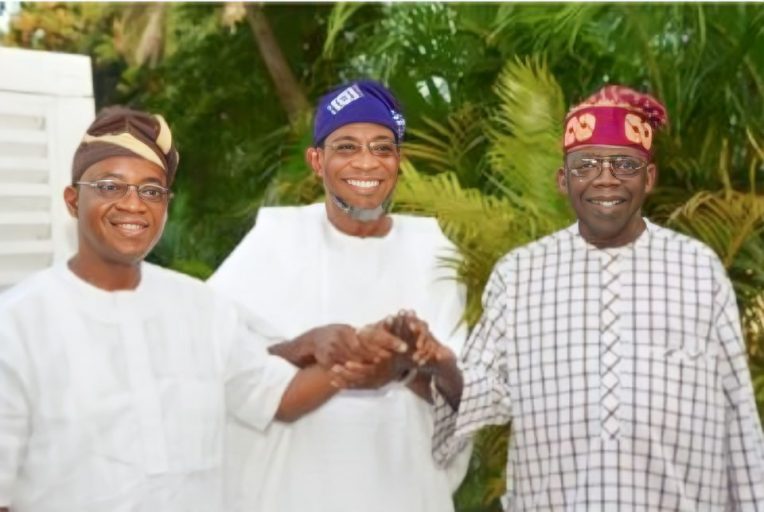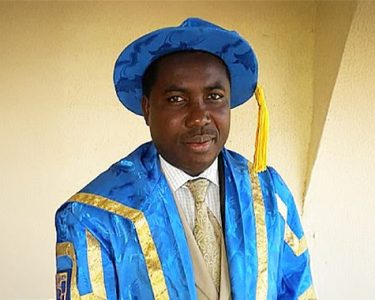In the dynamic and often turbulent world of Nigerian politics, the bond between President Bola Ahmed Tinubu and Ogbeni Rauf Aregbesola once stood as a model of loyalty, mentorship, and shared ideology. Their alliance was instrumental in shaping political outcomes in the South-West, and their collaboration influenced the rise of many within the All Progressives Congress (APC).
But as time passed, their once-solid relationship became strained, eventually giving rise to internal divisions and public confrontations. The fallout between Tinubu and Aregbesola is a revealing case study in how perceived favor can invite envy, and how political actors can cohabit to spread organized hatred against someone once considered indispensable.
Tinubu and Aregbesola’s political bond was forged during the early days of Nigeria’s fourth republic, under the progressive ideals of the Alliance for Democracy (AD) and later the All Progressives Congress (APC). Aregbesola, once Tinubu’s Commissioner for Works and Infrastructure in Lagos State, was widely seen as a protégé. With Tinubu’s backing, he ascended to the governorship of Osun State in 2010 through a hard-fought legal battle,a major victory credited to both his popularity and Tinubu’s political machinery.
The turning point in their relationship did not begin with rebellion or betrayal,it began with regional sentiment and political expectations.
In the lead-up to the 2018 Osun gubernatorial election, a strong movement emerged within the state calling for power to shift to the West Senatorial District, which had never produced a governor since Osun’s creation. Many believed it was time for equity and inclusion, and Aregbesola, attuned to the voices of the grassroots, reportedly sympathized with this demand.
However, in a move that would later be both praised and criticized, Aregbesola put aside that regional pressure and worked tirelessly to ensure the victory of Gboyega Oyetola, from the Central Senatorial District,a long-time ally of Tinubu. Despite internal party disagreements and mounting agitation, Aregbesola mobilized his structure and resources to deliver the election.
It was a decision made in loyalty, and yet, ironically, it became the seed of future accusations against him.
What followed was not just political disagreement, it was a deliberate, organized attempt to discredit Aregbesola. Party figures, former allies, media platforms, and online commentators began to paint a new image of him, one of disloyalty, insubordination, and ambition.
The man once hailed for winning Osun back from opposition control and raising the profile of progressive governance was now accused of tearing the party apart. His calls for internal reform and openness were twisted into evidence of rebellion. His silence was branded arrogance. His loyalty was questioned, not based on past contributions, but on his refusal to follow a newer political script.
This conspiracy of hatred was not random,it was systematic. The same political actors who once stood by his side now found common cause in undermining him. The more he attempted to explain his position, the louder the coordinated attacks grew.
In Nigerian politics, perception often overrides reality. The orchestrated campaign against Aregbesola reflected a deeper truth: those presumed to be favored often become targets of envy. When a leader steps out of line with the expectations of power brokers,especially if they enjoy grassroots support,they are quickly rebranded as threats.
Rather than engage in honest conversations about equity, party democracy, and loyalty, detractors weaponized political narratives. Loyalty was no longer measured by vision or history,but by total submission.
The fallout between Tinubu and Aregbesola offers important lessons about the fragility of political alliances and the dangerous ease with which hatred can be organized in the name of loyalty.
- Political favor breeds political envy: The higher one rises, the more one becomes a target,not for wrongdoing, but for daring to be independent.
- Manufactured hatred is powerful: With the right coordination, even a well-loved leader can be turned into a pariah.
- Regional equity must be respected: The call for Osun West to produce a governor wasn’t rebellion,it was a legitimate aspiration. Aregbesola’s sacrifice in supporting Oyetola should have deepened trust, not triggered betrayal.
- History must be honored: Aregbesola’s legacy in Osun cannot be erased by political propaganda. Leaders must be evaluated based on long-term impact, not short-term alignment.
The Tinubu-Aregbesola saga is more than a story of personal estrangement,it is a mirror reflecting the toxic elements of Nigeria’s political culture. It reminds us that until independent thinking is no longer punished, and until constructive disagreement is not seen as betrayal, the cycle of orchestrated hatred against those presumed to be favored will continue to thrive.
True democracy cannot exist in a space where dissent is silenced, and loyalty is blind. It is time for Nigerian politics to grow beyond such corrosive tactics and embrace a future built on fairness, inclusion, and principled leadership.




